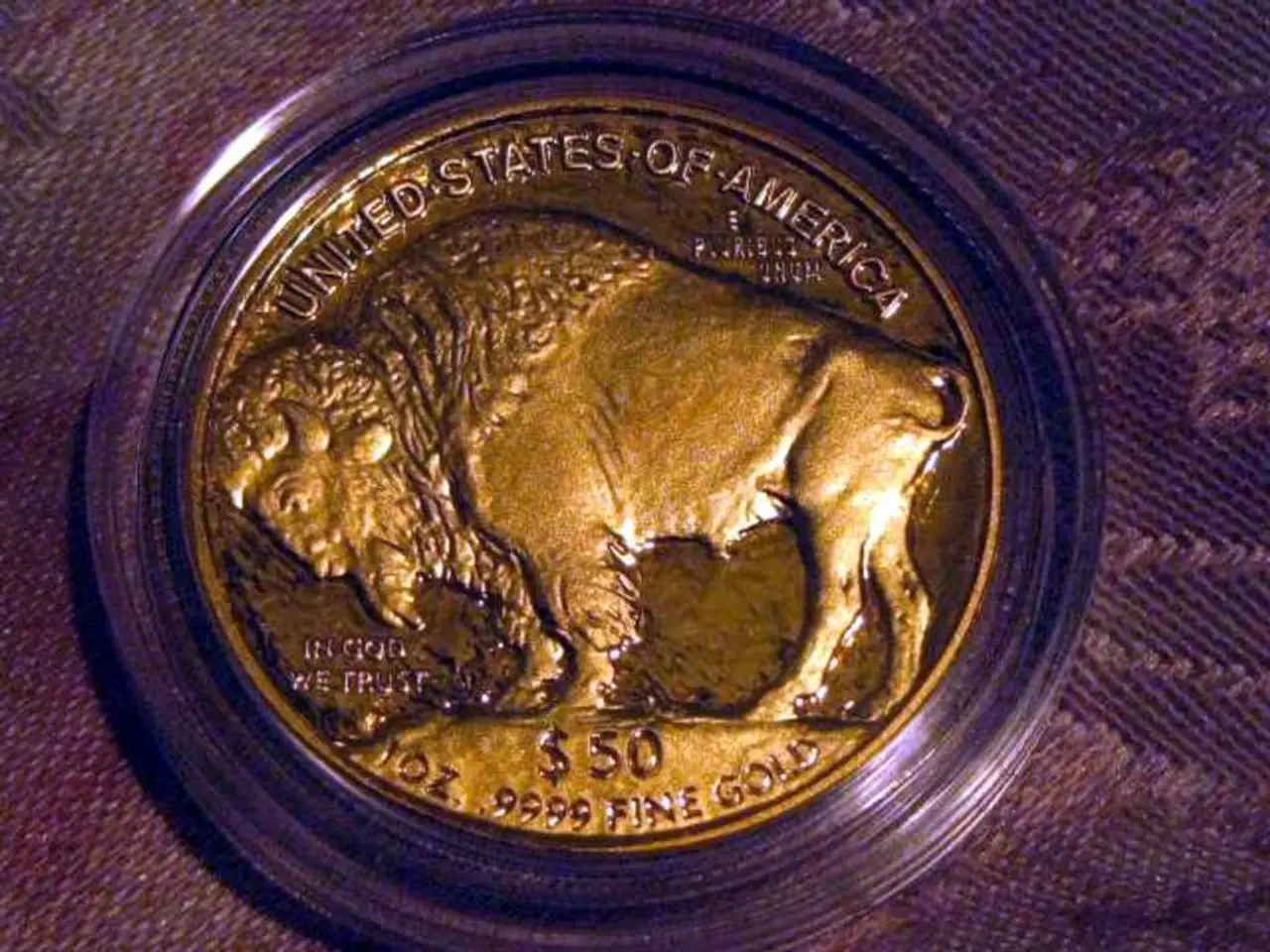Euro currency competing with Bitcoin and gold, according to ECB leader's viewpoint
In the ever-evolving world of finance, two significant players are making their mark – the Euro and Bitcoin.
The Euro, currently accounting for around 20% of global foreign exchange reserves, is striving to assert itself as a leading currency. However, it needs to enhance its geopolitical credibility, economic depth, and institutional decision-making power to achieve this goal. Christine Lagarde, ECB President, has emphasised the need for a stronger role for the Euro in the global financial system, a call she made in a recent guest article in the Financial Times.
Meanwhile, Bitcoin is carving out a niche as a digital reserve outside the state financial system. Its strategic importance is growing, with countries like El Salvador, Bhutan, and even individual U.S. states considering it as a long-term hedging instrument. In a bold move, El Salvador officially adopted Bitcoin as legal tender in 2021, becoming the first country to do so.
However, the U.S. Dollar, while losing some trust, is not necessarily losing its dominance to the Euro. The US is planning to build and expand a Bitcoin reserve on a national level. Meanwhile, central banks are rapidly building up their gold reserves, and some countries are seeking alternatives to traditional cross-border payment systems, illustrating a shift in trust away from the Dollar.
Gold, with its neutrality outside geopolitical dependencies, has already overtaken the Euro as the second most important reserve asset worldwide, according to current EZB data. This shift is further evidence of the changing landscape of international currencies.
The EU is still far from achieving Lagarde's vision of a strong Euro. Disagreement over EU bonds, an incomplete capital market union, and political inertia are hindering progress towards this goal. Conversely, institutional actors are increasingly investing in Bitcoin due to its non-inflationary, uncensorable, and independent nature.
A Member of the European Parliament (MEP) has called for a Bitcoin reserve within the EU, expressing concerns about potential loss of sovereignty and financial instability due to Trump's crypto policy. Meanwhile, trust in a currency depends on "legal integrity, economic resilience, and geopolitical strength," but many market participants are increasingly questioning these factors in both the Euro and the Dollar.
In her contribution titled "Changes in the landscape of international currencies" on the ECB's website, Lagarde highlights the role of digital assets and the structural change in the world economy. She stresses the need for the Euro to assert itself in this new environment against both classical alternatives like gold and digital challengers like Bitcoin.
As the world watches these developments unfold, it's clear that the international role of the Euro and the rise of Bitcoin are shaping the future of global finance.
Read also:
- Musk threatens Apple with litigation amidst increasing conflict surrounding Altman's OpenAI endeavor
- The Commission deems the assistance program to be in agreement with the domestic market regulations.
- Innovative Garments and Accessories Producing Energy: Exploring Unconventional Sources for Renewable Power
- BMW's Debrecen Plant Unveiled: Birthplace of the iX3 and New Class Models







